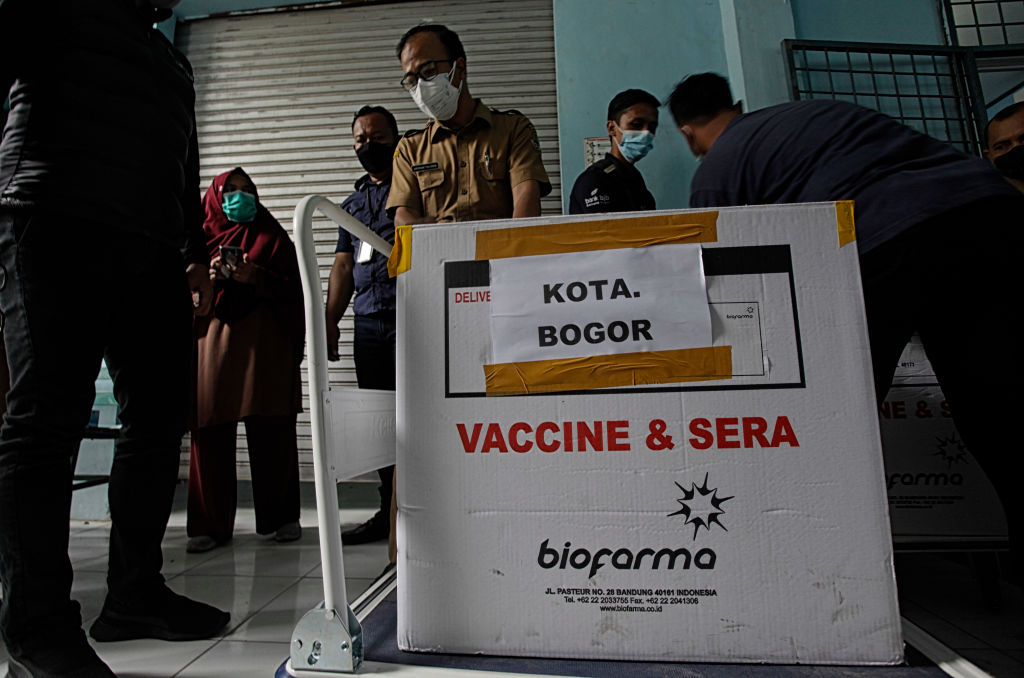
Indonesia has kicked off Southeast Asia’s largest inoculation program against Covid-19 to curb its record increase in infections, using Sinovac Biotech’s vaccine.
President Joko Widodo received the first jab in a televised ceremony at the presidential palace in Jakarta on Wednesday. Wearing his signature white shirt, the president had his blood pressure checked by the doctors before getting an injection to his left arm.
The Southeast Asian nation becomes a test case for the vaccine, being the first country to administer CoronaVac for mass vaccination outside of China. Questions have been raised about the vaccine’s efficacy rate amid scarce research data and varying levels of effectiveness reported in clinical trials in Brazil and Turkey.
Indonesia approved the emergency use of the Chinese vaccine on Monday.
Indonesia is facing the mammoth task of inoculating 181.5 million people, two-thirds of its population, across the world’s largest archipelago. It will prioritize 1.5 million health workers and 17.4 million public officers in the first round to be held until April, with other segments of the population subsequently receiving the jab through March 2022.
The vaccination for Jokowi, as he’s commonly known, was followed by shots administered to the military and police chiefs, the chairman of the doctors’ association as well as ministers and social media influencers on Wednesday.
The nation is also under pressure to swiftly administer vaccines as repeated movement restrictions did little to slow the virus spread that’s worsened in January after the year-end holidays. The country added more than 100,000 new infections so far this month, leading in Southeast Asia in the number of Covid-19 cases and deaths.
In addition to the logistical challenge of rolling out vaccines across its vast archipelago, the government will also have to contend with reluctance among Indonesians to be inoculated. A survey released in November showed 65% of respondents were willing to be vaccinated against Covid-19, while more than a quarter were unsure. The government is shouldering the cost of the vaccines after the survey found only a third were willing to pay for the shots.
–With assistance from Tassia Sipahutar.
More Must-Reads from TIME
- Cybersecurity Experts Are Sounding the Alarm on DOGE
- Meet the 2025 Women of the Year
- The Harsh Truth About Disability Inclusion
- Why Do More Young Adults Have Cancer?
- Colman Domingo Leads With Radical Love
- How to Get Better at Doing Things Alone
- Michelle Zauner Stares Down the Darkness
Contact us at letters@time.com